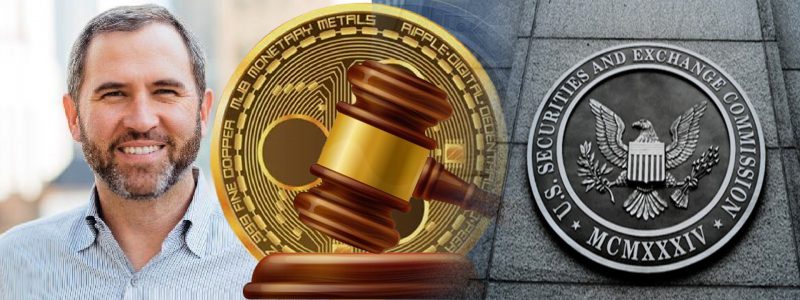Regulators all over the world are trying to set boundaries for crypto assets. To do so, however, it is quite crucial for the not-so-novel asset class to be clearly defined. The crypto space, at this stage, continues to be plagued by the indecisiveness associated with the ‘security v. not a security’ debate. Via its lawsuit against the SEC, Ripple intends to get the clarity box checked.
The regulatory agency feels that Ripple’s native XRP token is a security, while the payments firm and it is current and ex execs contend otherwise. The final verdict of the lawsuit would not only impact XRP but would also play a crucial role in deciding the fate of dozens of other tokens. As a result, every update with respect to the lawsuit is keenly being followed by people from the space.
Opining on the essence of the same on Bloomberg’s crypto show, Ripple CEO Brad Garlinghouse exclaimed,
“The reason why the Crypto Twitter community cares about this question is that it is not just about Ripple… The whole industry is impacted by this decision.”
XRP has been used synonymously with terms like “asset,” “currency,” “property,” etc. Per Garlinghouse, it is only the SEC that views it with the “security” lens. Elucidating on the same, he said,
“The irony is that the only country on the planet that thinks XRP is a security is the United States, the United States’ SEC.”
With respect to the progress of the on-going SEC-Ripple lawsuit, the exec said,
“The case has gone well. It’s still playing out. The SEC has certainly moved slowly. They have been dragging their feet. Gary Gensler said recently publicly that, “Justice delayed is justice denied,” and unfortunately justice is being delayed here by the continued efforts of the SEC to push things out.”
Ripple exec says, “…we’ve lost”
Bloomberg’s litigation analysts think that the SEC will ultimately go on to win the lawsuit. However, on the ground, Ripple is already feeling the pinch. In the United States, XRP has gradually started becoming redundant. Its liquidity has reduced, it has been halted and frozen on a host of US-based exchanges, and whatnot. Commenting on the same, Garlinghouse exclaimed,
“Unfortunately Ripple is already operating in a world is as if we’ve lost.”
Despite that, it is interesting to note, that Ripple has had a record year last year. It has been able to grow very quickly across its major product groups. The said growth, however, has been coming outside the United States for Ripple. The payment firm’s exec highlighted that 95% of Ripple’s customer base are non-US-based payment companies.
The ‘great’ irony
After highlighting his opinion on why the CFTC was better suited for the crypto regulatory role than the SEC, Garlinghouse concluded by bringing to light another irony. He said,
“One of the great ironies of the whole story here in the US is the SEC, at its core, has been a group that demands transparency, demands disclosure. Yet, they in this case are doing the exact opposite. They’re hiding their nose.”





